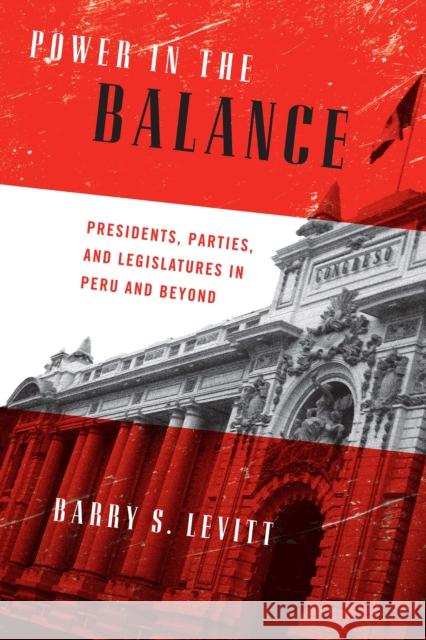Power in the Balance: Presidents, Parties, and Legislatures in Peru and Beyond » książka
Power in the Balance: Presidents, Parties, and Legislatures in Peru and Beyond
ISBN-13: 9780268034139 / Angielski / Miękka / 2012 / 358 str.
Power in the Balance: Presidents, Parties, and Legislatures in Peru and Beyond
ISBN-13: 9780268034139 / Angielski / Miękka / 2012 / 358 str.
(netto: 139,03 VAT: 5%)
Najniższa cena z 30 dni: 144,78
ok. 30 dni roboczych.
Darmowa dostawa!
In Power in the Balance: Presidents, Parties, and Legislatures in Peru and Beyond, Barry S. Levitt answers urgent questions about executive power in "new" democracies. He examines in rich detail the case of Peru, from President Alan Garcia's first term (1985-1990), to the erosion of democracy under President Alberto Fujimori (1990-2000), through the interim government of Valentin Paniagua (2000-2001) and the remarkable, if rocky, renewal of democracy culminating in Alejandro Toledo's 2001-2006 presidency. This turbulent experience with democracy brings into clear focus the functioning of formal political institutions--constitutions and electoral laws, presidents and legislatures, political parties and leaders--while also exposing the informal side of Peru's national politics over the course of two decades.Levitt's study of politics in Peru also provides a test case for his regional analysis of cross-national differences and change over time in presidential power across eighteen Latin American countries. In Peru and throughout Latin America, Levitt shows, the rule of law itself and the organizational forms of political parties have a stronger impact on legislative-executive relations than do most of the institutional traits and constitutional powers that configure the formal "rules of the game" for high politics. His findings, and their implications for improving the quality of new democracies everywhere, will surprise promoters, practitioners, and scholars of democratic politics alike. "Barry S. Levitt has delivered an important and original analysis of presidential power, legislative-executive relations, party politics, and rule of law in Peru from 1985 through 2006, advancing a fresh perspective on the strengths--and limitations--of institutionalist analyses in the fragile new democracies of Latin America. His book will be of great significance to scholars and students studying democratization and legislative-executive relations in the region."--Scott P. Mainwaring, Eugene and Helen Conley Professor of Political Science and Director of the Kellogg Institute for International Studies, University of Notre Dame











